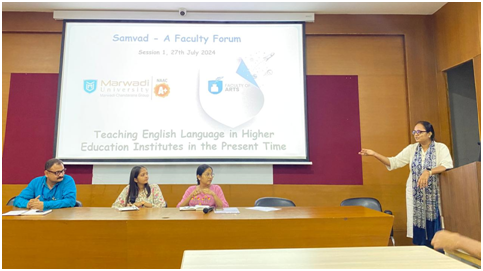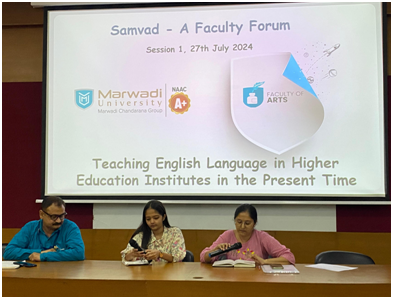Film Review of Gifted
- Dr.
Anjana Prajapati
Assistant
Professor,
Marwadi University,
Rajkot.
One significant
barrier to be happy is the relentless pursuit of societal expectations that define
success. This pressure is especially acute for gifted individuals, who are
frequently urged to maximize their potential in narrowly defined areas. This
can lead to an unhealthy sense of obligation, often at the expense of their
emotional well-being.
While striving
for achievement can be beneficial, it tends to
serve society's interests
more than the individual’s
growth. In this pursuit, we risk losing sight of what truly matters in
education: the nurturing of connection, joy, and the richness of human experience. We must recognize
that our worth extends beyond
conventional measures of success, fostering a compassionate view of
ourselves and our students.
The film Gifted offers a compelling lens through which to examine these
themes. Directed by Marc Webb, the story revolves around Mary Adler, a
seven-year-old gifted girl, and her uncle, Frank, who raises her while
navigating the complexities of her extraordinary abilities. Frank's journey
emphasizes the balance between nurturing
talent and ensuring
emotional well-being, a crucial lesson for educators.
Mary's
mother, Diane, was a brilliant mathematician whose legacy became a burden after
her tragic death. The pressures surrounding giftedness can create emotional
struggles that overshadow academic achievements. Frank’s devotion to Mary’s
happiness illustrates the heart
of education: prioritizing the emotional needs of students alongside their
intellectual growth.
Throughout the
film, Frank articulates a vital perspective: “I want her to know that her worth
isn’t tied to her achievements; it’s in who she is and how she treats others.”
This reflects an essential truth in education—that our role extends beyond
imparting knowledge; it involves nurturing the character and humanity of our
students.
The dynamics among
the characters reveal the importance of understanding and valuing the whole person.
Mary wrestles with her identity
beyond her intelligence, expressing a desire
to be seen for who she is,
not just her achievements. She reflects, “I just want to laugh
and enjoy the little things without everyone
expecting me to be a genius.” This longing for authenticity in a world focused
on accolades resonates with many students.
Moreover, Mary’s teacher, Bonnie Stevenson, embodies the philosophy that being gifted doesn’t require sacrificing one’s sense of ordinariness. She guides Mary through the challenges of balancing exceptional abilities with everyday experiences, emphasizing the importance of emotional support. “Don’t let the pressure to succeed drown out your own voice,” she advises, reminding us of the significance of emotional well-being in education.
As educators, we hold many
responsibilities, some clear and others more subtle, often shaped by our own
wisdom and intuition. Recognizing and addressing these subtleties can create a
meaningful impact on our students’ lives. By fostering an environment that
nurtures both intellectual and emotional growth, we empower our students to
thrive, fostering a sense of belonging that can last a lifetime.
Education
should not merely be about meeting academic benchmarks; it must be about
cultivating a rich tapestry of human experiences. It’s about creating
connections, fostering love, and celebrating the joy of learning.
True fulfillment comes from embracing our potential while prioritizing the
relationships we build along the way.
Ultimately,
the heart of education lies in acknowledging and nurturing the humanity in each of us. By focusing on the holistic
development of our students and encouraging genuine connections, we can
cultivate an enriching educational experience that celebrates both their
talents and their individuality. In doing so, we prepare them not only for
academic success but for a
fulfilling life, grounded in compassion and authenticity.





